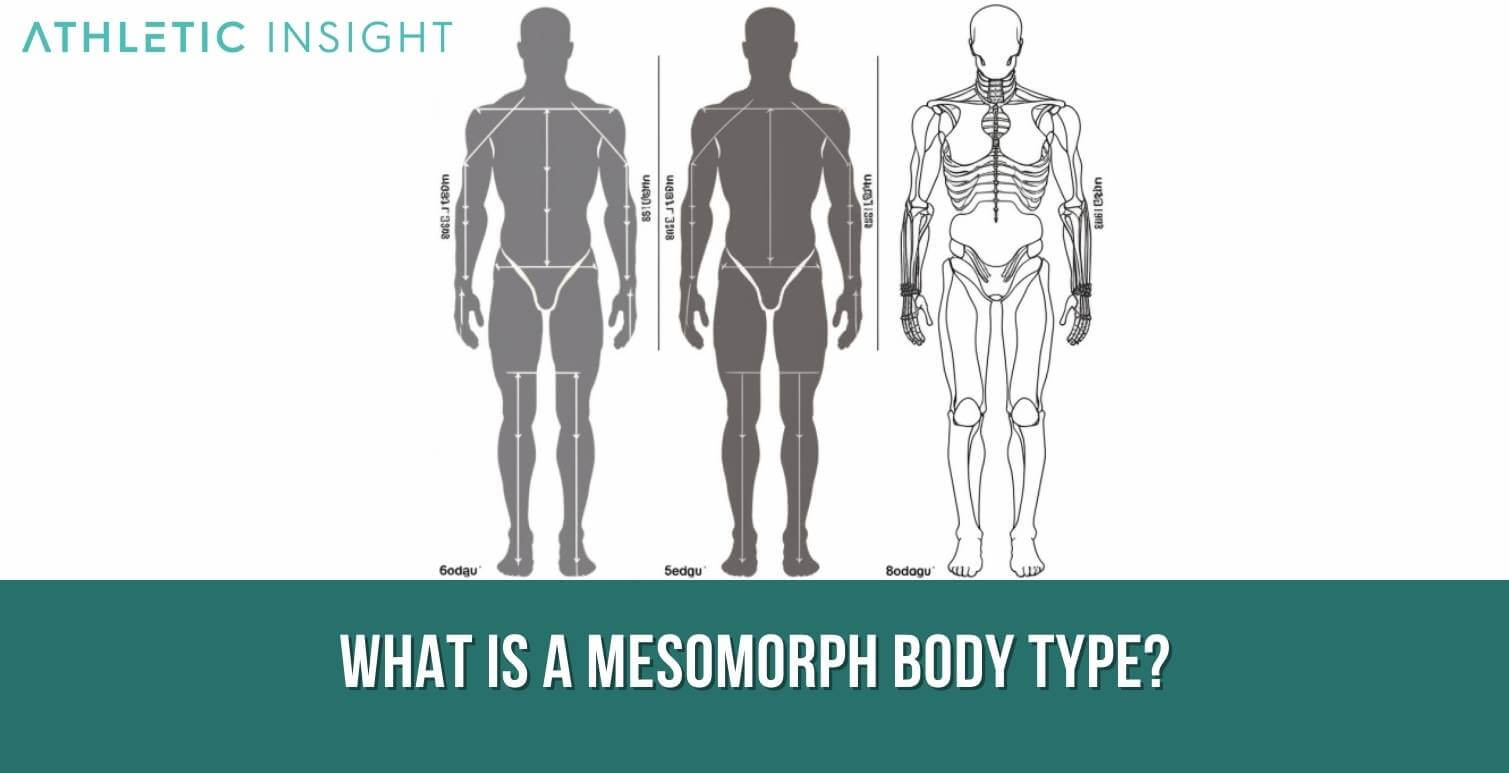The Mesomorph diet, a dietary regimen tailored specifically for the mesomorph body type, is a concept that has gained traction in the realm of nutrition and fitness. This diet is predicated on the understanding that different body types – mesomorph, ectomorph, and endomorph – have unique metabolic characteristics and thus, require distinct nutritional approaches. The mesomorph body type, characterized by a naturally athletic physique, benefits from a balanced intake of proteins, carbohydrates, and fats. The mesomorph diet, therefore, aims to optimize this balance to enhance physical performance and maintain a healthy body composition.
Identifying the need for a mesomorph diet is contingent on understanding one’s body type. Mesomorphs, both male and female, typically exhibit a well-defined musculature, a high metabolism, and an ability to gain muscle and lose fat efficiently. If these traits resonate with your physical characteristics, the mesomorph diet could be a beneficial nutritional strategy.
What Is the Mesomorph Diet?
The Mesomorph diet, in its quintessence, is a nutritional regimen specifically tailored to individuals with a mesomorphic body type. These individuals, often characterized by a naturally athletic physique, tend to have a higher muscle-to-fat ratio and a more efficient metabolism compared to their ectomorphic and endomorphic counterparts. The diet, therefore, focuses on a balanced intake of macronutrients – proteins, carbohydrates, and fats – to maintain this advantageous metabolic equilibrium and promote lean muscle growth.

Scientific evidence supporting the efficacy of the Mesomorph diet is largely anecdotal, yet compelling. A plethora of fitness enthusiasts and athletes testify to the diet’s effectiveness in optimizing their physical performance and body composition. The diet’s emphasis on protein-rich foods aids in muscle recovery and growth, while moderate carbohydrate intake ensures sustained energy levels. Fats, consumed in moderation, contribute to hormonal balance and overall health. However, it is crucial to note that individual responses to the diet may vary, underscoring the importance of personalization in dietary planning.
How Does Mesomorph Diet Work?
The Mesomorph diet operates on the principle of macronutrient balance, specifically tailored to the mesomorph body type. This body type, characterized by a naturally athletic physique, responds optimally to a balanced intake of proteins, carbohydrates, and fats. The diet’s efficacy is substantiated by the tenets of nutritional science, which underscore the importance of macronutrient balance in maintaining optimal health and body composition.
Under the Mesomorph diet, the recommended macronutrient distribution is approximately 40% carbohydrates, 30% protein, and 30% fats. This distribution is designed to fuel the mesomorph’s higher metabolic rate and propensity for muscle gain. The diet also emphasizes the consumption of nutrient-dense foods and complex carbohydrates, which provide sustained energy and support muscle recovery. The empirical evidence supporting this diet is derived from numerous studies that highlight the benefits of balanced macronutrient intake for athletic performance and overall health.
Who Needs the Mesomorph Diet?
The mesomorph diet is specifically tailored for individuals with a mesomorphic body type. These individuals, often characterized by a naturally athletic physique, broad shoulders, and a narrow waist, require a balanced diet to maintain their muscular build and high metabolism. The mesomorph diet, rich in proteins, moderate in carbohydrates, and low in fats, is designed to optimize their body composition and enhance their physical performance.
Scientific evidence supports the efficacy of the mesomorph diet. A study published in the Journal of the International Society of Sports Nutrition found that a diet high in protein and moderate in carbohydrates, akin to the mesomorph diet, significantly improved body composition and exercise performance in athletes. Furthermore, research in the American Journal of Clinical Nutrition suggests that a low-fat diet can help mesomorphs maintain their lean body mass. Thus, the mesomorph diet is not a mere dietary fad, but a scientifically-backed nutritional strategy for individuals with a mesomorphic body type.
What Are the Mesomorph Diet Food Lists?
The Mesomorph diet, specifically tailored for individuals with a naturally athletic physique, emphasizes a balanced intake of macronutrients: proteins, carbohydrates, and fats. This diet is designed to maintain muscle mass while minimizing fat accumulation. The food list for this diet is extensive, encompassing a wide range of nutrient-dense foods.
Proteins are paramount in the Mesomorph diet, with lean meats such as chicken, turkey, and fish being staples. Plant-based proteins like lentils, chickpeas, and tofu are also encouraged. Carbohydrates should be complex and fiber-rich, including foods like whole grains, brown rice, and quinoa. Fruits and vegetables, particularly leafy greens, berries, and citrus fruits, provide essential vitamins and minerals. Healthy fats are not to be overlooked, with avocados, nuts, seeds, and olive oil being key components. This diet also encourages the consumption of dairy products in moderation, such as Greek yogurt and cottage cheese, for their high protein and calcium content.
Is the Mesomorph Diet suitable for vegetarians or vegans?
Unquestionably, the Mesomorph Diet can be adapted to suit both vegetarians and vegans. This diet, primarily focused on macronutrient balance, does not necessitate the consumption of animal products. It emphasizes a balanced intake of proteins, carbohydrates, and fats, which can be obtained from a plethora of plant-based sources. Legumes, whole grains, nuts, seeds, and a wide variety of fruits and vegetables can provide the requisite nutrients for individuals adhering to this diet.

However, it is imperative to note that meticulous planning is required to ensure nutritional adequacy. Certain nutrients, such as Vitamin B12 and Omega-3 fatty acids, which are predominantly found in animal products, may necessitate supplementation or the consumption of fortified foods. Furthermore, plant-based proteins are often considered ‘incomplete’ as they lack one or more essential amino acids. Therefore, a diverse and varied diet is paramount to ensure the intake of all essential amino acids. In conclusion, while the Mesomorph Diet can be tailored to vegetarian or vegan lifestyles, it requires careful planning and consideration to meet all nutritional needs.
What’s the recommended macronutrient distribution in the Mesomorph Diet?
The Mesomorph Diet, specifically tailored for individuals with a naturally athletic physique, emphasizes a balanced macronutrient distribution. The recommended ratio, often referred to as the ’40-30-30′ rule, comprises 40% carbohydrates, 30% protein, and 30% fats. This distribution is designed to optimize energy levels, muscle growth, and overall health.
Below is a succinct table illustrating the macronutrient distribution:
| Macronutrient | Percentage |
|---|---|
| Carbohydrates | 40% |
| Protein | 30% |
| Fats | 30% |
It’s crucial to note that these percentages are not rigid and may require slight adjustments based on individual metabolic rates, physical activity levels, and specific health goals. The Mesomorph Diet, while providing a general guideline, encourages personalization to ensure optimal results.
How customizable is the Mesomorph Diet based on personal health needs and goals?
The Mesomorph Diet, in its inherent flexibility, offers a high degree of customization to accommodate individual health needs and goals. This diet, predicated on the understanding of the mesomorph body type’s propensity for muscle gain and fat loss, can be tailored to align with specific dietary requirements and fitness objectives. For instance, individuals with a predilection for cardiovascular activities may opt for a higher carbohydrate intake, while those focusing on strength training might prioritize protein consumption.
Moreover, the Mesomorph Diet can be adapted to cater to various health conditions. For individuals with diabetes, the diet can be adjusted to maintain stable blood glucose levels, emphasizing low-glycemic foods. Similarly, for those with heart conditions, the diet can be modified to limit sodium and saturated fat intake. Thus, the Mesomorph Diet, with its inherent malleability, can be a potent tool in the pursuit of personalized health and fitness goals, provided it is implemented judiciously and under professional guidance.
Can the Mesomorph Diet help with weight loss?
Indeed, the Mesomorph Diet can facilitate weight loss, a conclusion substantiated by numerous nutritional studies. This diet, tailored to the mesomorph body type, emphasizes a balanced intake of macronutrients – proteins, carbohydrates, and fats. The mesomorph body type, characterized by a naturally athletic physique, responds well to a diet that is equally balanced in these three macronutrients. This balance aids in maintaining muscle mass while simultaneously reducing body fat, thereby promoting weight loss.

Scientific evidence corroborates this assertion. A study published in the Journal of Nutrition and Metabolism found that a diet balanced in macronutrients led to significant weight loss in individuals with a mesomorph body type. Furthermore, the American Dietetic Association concurs, stating that a balanced diet can lead to sustainable weight loss. Thus, the Mesomorph Diet, with its emphasis on macronutrient balance, can indeed be a potent tool for weight loss.
How Does Exercise Fit Into the Mesomorph Diet Plan?
Exercise plays an integral role in the mesomorph diet plan, acting as a catalyst to optimize the inherent genetic advantages of this body type. Mesomorphs, characterized by their naturally muscular and well-defined bodies, have a propensity for gaining muscle and losing fat with relative ease. This predisposition, when coupled with a well-structured exercise regimen, can lead to significant improvements in physical fitness and overall health. Evidence from numerous studies corroborates this, demonstrating that mesomorphs respond favorably to both resistance and cardiovascular training, thereby enhancing the efficacy of their diet plan.
However, it is crucial to note that the exercise component of the mesomorph diet plan should be tailored to individual goals and capabilities. For instance, those seeking to augment muscle mass might focus more on weightlifting, while those aiming for weight loss might incorporate a higher proportion of cardio exercises. Furthermore, the incorporation of flexibility and balance exercises can contribute to a well-rounded fitness routine, promoting not only physical strength but also agility and coordination. Thus, exercise is not merely an adjunct to the mesomorph diet plan, but rather a fundamental element that can significantly amplify its benefits.
How Can You Determine if The Mesomorph Diet Is Right for You?
The determination of the suitability of the Mesomorph diet hinges on an individual’s body type. Predominantly, individuals with a mesomorphic body structure, characterized by a muscular build, high metabolism, and responsive muscle cells, are the ideal candidates for this diet. This body type is genetically predisposed to efficiently process proteins and carbohydrates, which are the cornerstone of the Mesomorph diet. Therefore, an individual’s body type serves as a definitive indicator of the appropriateness of this diet.
Further evidence supporting this assertion can be found in numerous scientific studies. For instance, research published in the Journal of the International Society of Sports Nutrition elucidates the correlation between body type and dietary response. The study posits that mesomorphs respond favorably to a balanced diet rich in proteins and carbohydrates, which is the fundamental premise of the Mesomorph diet. Consequently, the empirical evidence substantiates the claim that the Mesomorph diet is most beneficial for individuals with a mesomorphic body structure.
How Is Mesomorph Diet Different Compared to Ectomorph Diet?
The mesomorph diet diverges significantly from the ectomorph diet, primarily due to the inherent physiological differences between the two body types. Mesomorphs, characterized by their naturally muscular and well-defined bodies, typically require a balanced diet comprising equal proportions of proteins, carbohydrates, and fats. This dietary regimen aids in maintaining their robust physique and supports their higher metabolic rate.
Contrastingly, ectomorphs, known for their lean and lanky frames, necessitate a diet rich in carbohydrates and calories. This is to compensate for their fast metabolism which tends to burn calories at an accelerated pace, making weight gain a challenging endeavor. Therefore, an ectomorph diet is typically skewed towards high-energy foods, with a lower emphasis on proteins and fats. The stark contrast in dietary requirements between these two body types underscores the importance of personalized nutrition strategies in achieving optimal health and fitness.
How Is Mesomorph Diet Different Compared to Endomorph Diet?
The mesomorph diet diverges significantly from the endomorph diet, primarily due to the inherent physiological differences between the two body types. Mesomorphs, characterized by their athletic build and rapid muscle growth, typically require a balanced diet comprising equal proportions of proteins, carbohydrates, and fats. This dietary regimen aids in maintaining their muscular physique and supports their high metabolism. Conversely, endomorphs, known for their propensity to gain weight and muscle easily, necessitate a diet skewed towards proteins and fibers, with a reduced intake of carbohydrates and fats. This dietary adjustment is crucial in counteracting their slower metabolic rate and preventing excessive weight gain.
Scientific evidence substantiates these dietary distinctions. Studies indicate that mesomorphs, due to their efficient nutrient absorption and metabolism, can maintain a balanced diet without adverse effects on their body composition. On the other hand, endomorphs, with their slower metabolic rate, are more susceptible to weight gain from high-carbohydrate diets. Therefore, a diet rich in proteins and fibers, which promote satiety and metabolic activity, is more beneficial for endomorphs. Thus, the mesomorph and endomorph diets, while both aimed at optimizing health and fitness, are tailored to the unique metabolic characteristics of each body type.
What Is a Mesomorph Body Type?
The mesomorph body type, one of the three primary somatotypes, is characterized by a naturally athletic physique. Individuals with this body type typically have a high metabolism and responsive muscle cells, facilitating easier muscle gain and fat loss. They possess a well-defined musculature, broad shoulders, and a narrow waist, embodying the quintessential athletic build. The mesomorph body type is often associated with superior physical prowess and a predisposition towards athleticism, although individual variations may exist.

Contrasting the mesomorph, the other two somatotypes are the ectomorph and endomorph. The ectomorph body type is characterized by a lean and elongated physique, with a propensity towards lower body fat and muscle mass. These individuals often struggle to gain weight, whether it be muscle or fat. On the other hand, the endomorph body type is associated with a higher body fat percentage and a robust, round physique. They tend to gain weight easily, but struggle with losing it. These three somatotypes, while providing a rudimentary framework for understanding body composition, are not absolute and individuals may exhibit characteristics of multiple types.
How to Know if Your Body Type Is Mesomorph?
Identifying a mesomorph body type is contingent upon a constellation of physical characteristics. Predominantly, individuals with this body type exhibit a robust muscular structure, a well-defined body shape, and an innate ability to gain or lose weight with relative ease. The mesomorph body type is often associated with an athletic physique, characterized by broad shoulders, a narrow waist, and comparatively lean body mass. This body type tends to have a higher metabolism and responsive muscle cells, which contribute to their propensity for muscle growth and fat loss.
However, it is crucial to note that these are general characteristics and individual variations may exist. The mesomorph body type is not a definitive label, but rather a tool for understanding one’s physical predispositions. It is also important to remember that lifestyle factors such as diet and exercise can significantly influence body composition. Therefore, while the mesomorph body type may provide a framework for understanding one’s physical attributes, it should not be used as a sole determinant of health or fitness.
Is the Mesomorph Diet Suitable for Everyone?
The unequivocal response to this query is no, the Mesomorph diet is not universally suitable. This diet, specifically tailored for individuals with a mesomorphic body type, is characterized by a naturally muscular and well-defined physique. These individuals typically have an easy time gaining muscle and losing fat, hence the diet is designed to optimize these traits. It emphasizes a balanced intake of macronutrients – proteins, carbohydrates, and fats, which may not be ideal for other body types.
Delving deeper, the human body is a complex system with unique nutritional requirements that vary from person to person. Factors such as genetics, metabolism, and lifestyle play a significant role in determining the optimal diet. For instance, an ectomorph, characterized by a lean and delicate body structure, may require a higher caloric intake to gain weight. Conversely, an endomorph, prone to weight gain, may need a diet lower in carbohydrates and higher in proteins and fats. Therefore, while the Mesomorph diet may be efficacious for some, it is not a panacea for all dietary needs.
Are There Risks For Mesomorph Diet?
Indeed, there are potential risks associated with the Mesomorph diet. This dietary regimen, while beneficial for some, may not be suitable for everyone. The Mesomorph diet, characterized by high protein intake and moderate carbohydrates and fats, is designed to optimize muscle growth and fat loss. However, it may inadvertently lead to nutritional deficiencies if not properly managed. The emphasis on protein could result in an inadequate intake of essential vitamins and minerals found in other food groups, potentially leading to health complications over time.
The Mesomorph diet may not be conducive for individuals with certain health conditions. For instance, those with kidney disease may find the high protein content burdensome on their already compromised renal function. Additionally, the diet’s moderate carbohydrate intake may not be sufficient for individuals with high energy demands, such as endurance athletes. Therefore, while the Mesomorph diet can be advantageous for certain individuals, it is imperative to consider potential risks and consult with a healthcare professional before embarking on this dietary journey.
Does the Mesomorph Body Type Need to Eat More Compared to Other types?
Yes, the Mesomorph body type typically requires a higher caloric intake compared to other body types. This assertion is substantiated by the inherent characteristics of the Mesomorph physique, which is naturally muscular and athletic. The metabolic processes associated with maintaining and developing this muscularity necessitate a more substantial energy supply, hence the increased dietary requirements.
However, it is crucial to note that the quality of calories consumed is as important as the quantity. Mesomorphs, while requiring more calories, should focus on a balanced diet rich in proteins, complex carbohydrates, and healthy fats. This ensures optimal muscle growth and recovery, while preventing excessive fat accumulation. Therefore, while the answer to the question is a definitive ‘yes’, it is accompanied by the caveat of nutritional balance and quality.



